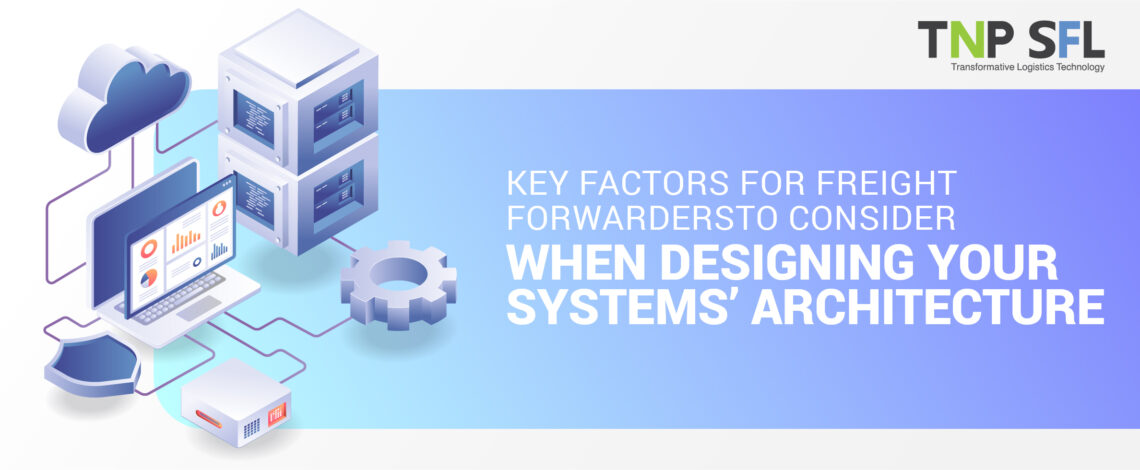In a rapidly evolving technology landscape, efficient systems architecture design is a critical component for future business success. It powers businesses forward, revolutionizes operations, and leverages untapped potential. For logistics executives seeking to navigate the complex landscape of software development, a deep understanding of the key factors that underpin an optimal system architecture is imperative.
Here are 6 key factors to consider when designing your system’s architecture:
- Scalability – The Pillar of Enduring Growth
At the heart of every remarkable system’s architecture lies scalability—a cornerstone for unlocking boundless growth potential. To deploy software that can seamlessly accommodate expanding user demands and escalating data volumes, you must adopt a forward-thinking mindset. This entails harnessing horizontal and vertical scaling techniques, load balancing strategies, and the elasticity of cloud computing. By architecting for scalability, businesses can future-proof their systems, ensuring they can effortlessly adapt to evolving requirements while maintaining optimal performance.
- Flexibility and Modularity – Empowering Agility and Adaptability
An exceptional system’s architecture allows for the integration of new components and services with ease, fostering adaptability and propelling innovation. By embracing a modular approach and leveraging components, businesses gain the ability to rapidly respond to market dynamics, effortlessly incorporate system enhancements, and foster a culture of continuous improvement. The result? An agile organization that can effortlessly navigate the ever-evolving technological landscape.
- Performance Optimization – Elevating User Experiences
Achieving peak performance requires a multidimensional approach that includes strategic caching mechanisms, intelligent load balancing algorithms, and meticulous optimization techniques. By maximizing throughput, minimizing latency, and delivering optimal response times, you can craft software solutions that provide extraordinary user experiences. In this era of heightened expectations, outstanding performance differentiates the leaders from the followers and unlocks customer satisfaction to unparalleled heights.
- Reliability and Fault Tolerance – Forging Resilient Systems
Building robust systems necessitates implementing redundancy measures, incorporating fault and exception detection mechanisms, and designing fail-safes that ensure continuous availability. By proactively addressing potential pitfalls, businesses can minimize disruptions, safeguard critical data, and instill confidence in users. This unwavering reliability empowers organizations to maintain seamless operations, even amidst unforeseen challenges.
- Security and Data Privacy – Upholding Compliance Mandates
Exceptional architectures integrate robust security measures, including encryption, multi-factor authentication mechanisms, and sophisticated intrusion detection systems. Adhering to industry regulations and best practices ensures data privacy and establishes trust with customers and partners. Meeting global compliance and regulatory standards your business can protect sensitive information, mitigate risks, and safeguard their reputation in an increasingly interconnected world.
- Seamless Integrations – Creating Digital Synchrony
By embracing standardized protocols, employing RPA, EDI and API-driven development practices, and adopting robust integration patterns, your team can harmonize disparate technologies, legacy systems, and emerging innovations. This enables unprecedented interoperability, catalyzes collaborative ecosystems, and unlocks efficiencies throughout the digital value chain. Seamless integration empowers organizations to leverage the full potential of their software ecosystems
To achieve these benefits and drive digital transformation in your supply chain operations, consult with teams that not only have a background in management consultancy, but have expertise in SCM operations, as well.







